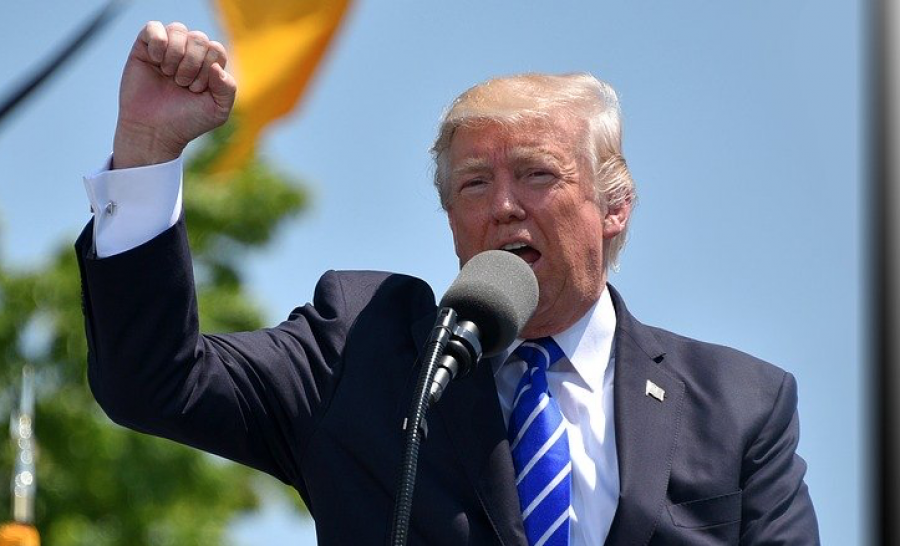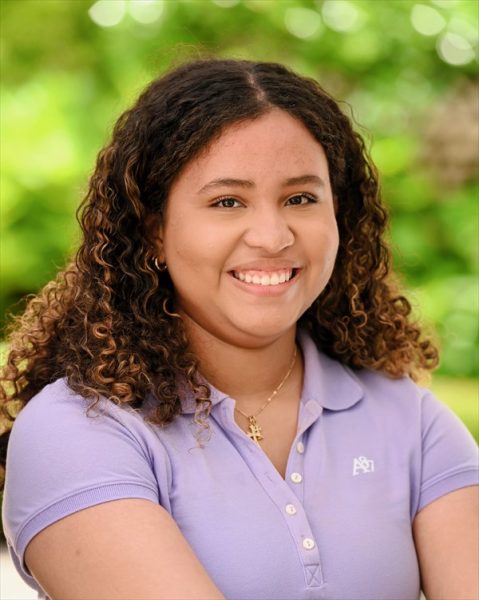Students react to ongoing Impeachment trial
President Trump addresses a crowd with his fist pumping in passion at a rally while the trial continues. He was the third President to be impeached in the history of the United States.
January 31, 2020
WEB EXCLUSIVE As the verdict of the impeachment trial of President Donald Trump looms, Convent & Stuart Hall students are discussing the national news in their classrooms.
The trial in the Senate will determine whether or not Trump will be removed from his Position as President of the United States. The two charges the House of Representatives found him guilty of were the Abuse of Power and the Obstruction of Congress in December.
In a few classes, including World History I, students discussed the trial in depth. Talking about the trial at school helps to acquire more knowledge and a variety of opinions surrounding the issue, according to freshman Kiki Dauphin.
“I knew that having any chance of the President being removed was a big deal,” Dauphin said. “But I didn’t really understand the process of what is happening and comprehend it in a holistic way until we discussed it openly in a classroom setting.”
Students in other classes have mostly refrained from discussing the topic according to Global Politics teacher Michael Stafford.
“Every day my students do what we call ‘nightly news’ and recap current events,” Stafford said. “They brought up Corona Virus and other popular news but they never brought up the trail which is especially interesting considering they included Trump’s new Middle East peace plan.”
Despite the significance of the circumstances, the trial and questioning of leadership does not affect daily life, according to freshman Ella Plotinsky.
“I feel like since it is such a big deal every moment someone should be talking about it and we should be conversing about it during passing periods and lunch,” Plotinsky said. “However, I feel that realistically people aren’t really talking about it other than an academic setting since it is not directly affecting our lives yet.”
There are multiple reasons students might be shying away from the issue, according to Stafford.
“I honestly think some people are just tired of it,” Stafford said. “I think they are tired of the partisan politics and tired of hearing about the same thing over and over.”
Being involved and keeping up with the constant moving parts of the trial is hard especially because of all the varying information in the media according to Dauphin.
“When we are talking in class, I feel like I am informed on the topic, but I also feel like if I did not keep up with it for even one day, I would miss a lot,” Dauphin said. “Although keeping up with it is hard because I feel like I have to sift through a lot of information from multiple different sources just to get clear, unbiased information.”
The general lack of partisan cooperation also may contribute to the lack of discussion regarding the topic for many upperclassmen’s in-class discussions.
“I think partisan politics have gotten to a point where students potentially could be nervous to discuss the topic,” Stafford said. “It is a part of my class to talk about the hard issues in a safe space, but I think it frightens people to think they might open Pandora’s box.”










